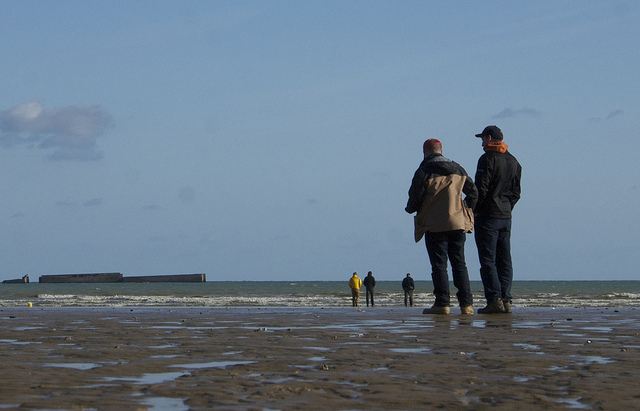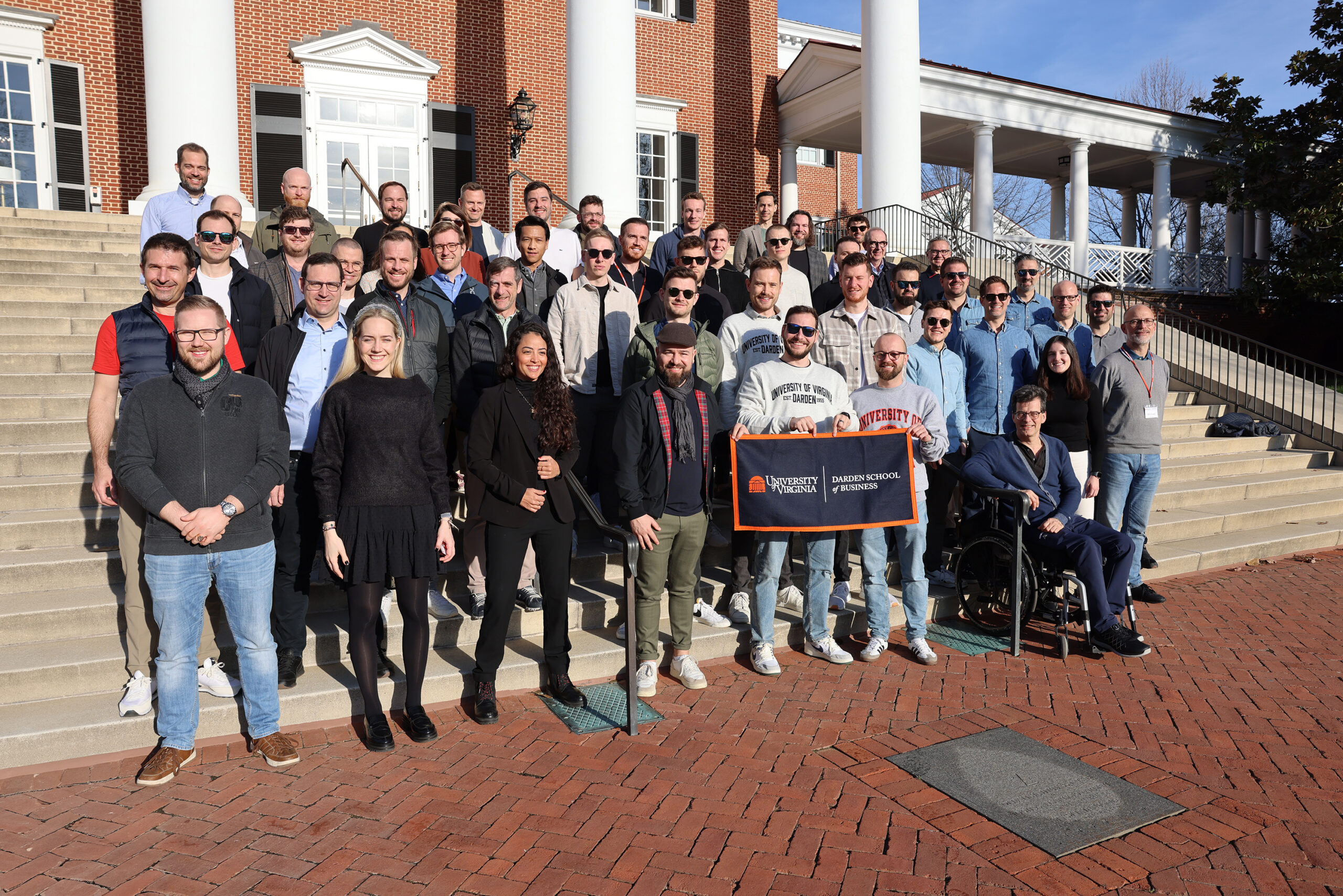By Abena Foreman-Trice
Lessons in leadership are gleaned from the way in which wars are fought and won.
But they aren’t just for the enlightenment of military personnel. B-school students and business leaders benefit a great deal from these lessons as well.
Listen to commentary from Gordon Rudd, dean of academics and professor of strategic studies at the U.S Marine School of Advanced Warfighting…
First Year MBA students and alumni of the University of Virginia Darden School of Business explored the historic battlegrounds of Normandy, France this past spring in search of leadership lessons that applied not only to the world’s largest seaborne invasion, but that also resonate in the business word.
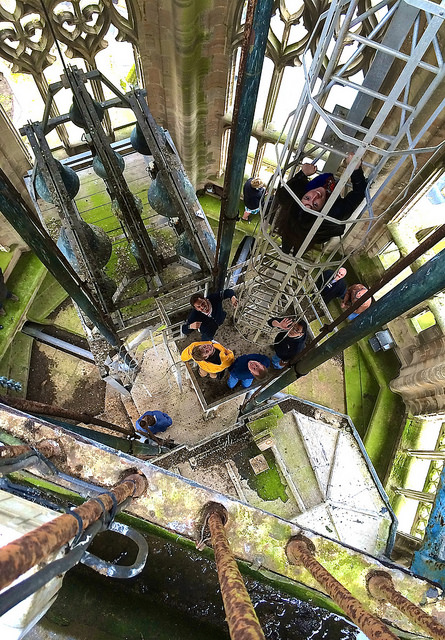
The pilot program, called the “First Year MBA Normandy Global Leadership Ride,” challenged Darden students to examine the components of the Allied sea, air and land assaults of D-Day and draw parallels between the leadership actions displayed by soldiers on the battlefield and the leadership actions that the students can take into the boardroom.
The Normandy invasions, which began 6 June 1944, required extensive planning, including military strategy development, the use of communication technology to fool the enemy and lots of practice. Ultimately, the preparations led to the successful execution of a plan to overcome Nazi Germany’s stronghold over France and much of Europe.
The first portion of the program took place on Darden’s Grounds, where students studied the command structure, leadership and operations the invasions required. The experiential learning portion took place over three days in Normandy. Students visited:
- Omaha Beach, St. Lo
- Utah Beach, Cherbourg
- Arromanches and the British Sector
At each location, two students provided a briefing of the events from the Allied and German sides, followed by a 20-minute discussion on leadership and how the actions translated into business.
Full-time MBA student Sonja Pedersen Green led a discussion with the group at St. Lo.
“Hedgerows limited visibility for the Allies and prevented them from seeing the snipers who were firing at them,” said Pedersen-Green. “To improve visibility, an infantryman came up with the idea of attaching devices onto tanks to cut down the shrubbery and improve visibility for the Allies.”
Pedersen-Green, whose summer internship will involve work in strategy and business development, believes this type of bottom-up creativity shows the value in getting ideas from people working on the front lines.
“Getting firsthand accounts is important in business and vital in determining and implementing business strategy,” she said.
She also noted inflexibility as a contributor to Germany’s ultimate failure in the war.
“There were big differences between the Germans and the Allies,” she said. “Allies could make quick decisions on the ground, whereas the Germans had to go through their bureaucracy before they could pivot in a new direction. The Germans operated with more of a hierarchy, and the Allies had a more streamlined reporting structure.”
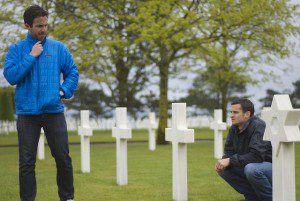
Not only did the experience evoke lessons in business leadership, but the visits also awakened the students’ senses and allowed them to imagine the dangers that the soldiers faced.
“Looking at the shrubbery and imagining gunfire coming at you that you can’t see allowed you to feel a sense of fear,” said Pedersen-Green.
“We did all the right advance work by diligently studying the extraordinary challenges facing leaders at all levels of the Invasion of Normandy. But being in the field with experienced military leaders and scholars made all the difference,” said Peter Rodriguez, senior associate dean for degree programs at Darden. “The enduring imprint of being engaged at the key touch points of history can’t be replicated anywhere else.”
The pilot program was created through collaboration with Darden faculty members and Gordon Rudd, dean of academics and professor of strategic studies at the U.S Marine School of Advanced Warfighting.
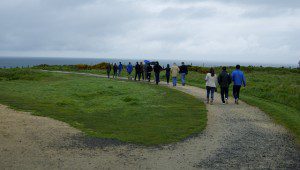
“I have had an interest in MBA programs in general for some time and the Darden School in particular due to its reputation. MBA programs are about a great deal more than business and have application to other endeavors involving leadership and management critical to military planning and operations,” said Rudd.
“I think the overriding theme was that events do not always go according to plan, and the questions is: What, as a leader, are you going to do about it? The American attack at Pointe du Hoc emphasized this point,” said Gaither Shaw (MBA ’71), one of the two Darden alumni to attend the pilot program.
Shaw explained that the commander for this particular mission, Major Cleveland A. Lytle, spoke against the campaign and was under the influence of alcohol the night before the attack. Against orders and in the face of seemingly impossible odds, Lieutenant Colonel James Earl Rudder took command and went ashore, leading his men to accomplish the mission.
“Also, the importance of trained, lower-level commanders stepping up under duress was repeated time after time,” said Shaw.
As in war, business is filled with surprises and uncertainty. Darden strives to develop leaders who can make decisions while dealing with unforeseen challenges.
